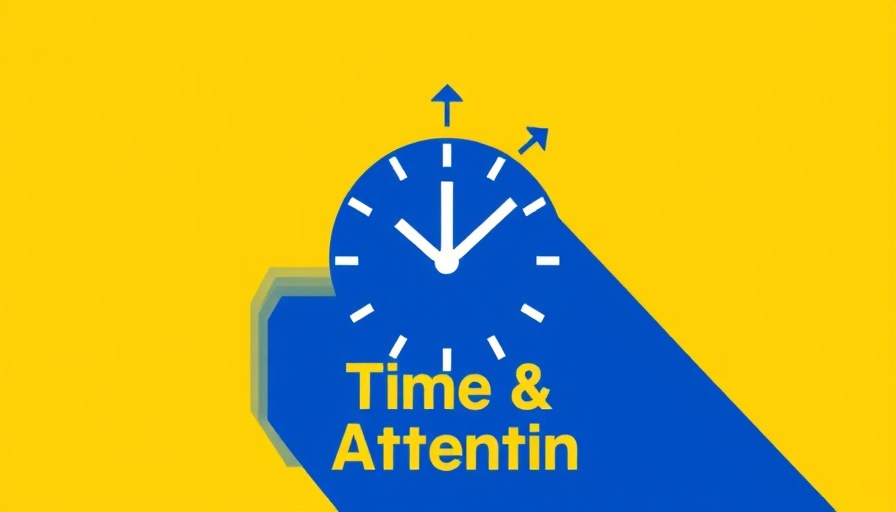
The Divine Equation of Wealth and Purpose
In today's fast-paced world, executives and entrepreneurs often find themselves consumed by the pursuit of wealth, potential profits, and recognition in a competitive marketplace. However, as Myron Golden elucidates in his enlightening discourse, the true key to multiplying your finances lies not solely in the grind or endless hustle, but rather in aligning your financial goals with spiritual principles and a higher purpose.
In 'The Key to Multiplying Your Finances and Honoring God Make money in God's Way', Myron Golden dives into aligning financial practices with spiritual truths—insights that inspire deeper analysis on effective wealth management.
Understanding Money as a Tool
Wealth and abundance are frequently misunderstood, painted either as laudable aspirations or vilified as corrupt ambitions. But the truth, as Golden highlights, is that money itself is neutral; it takes on the character of the individual wielding it. Entrepreneurs must shift their perspective—money is not merely a means to enjoy a lavish lifestyle, but a powerful tool for making profound impacts in the community and world at large.
Golden warns against idolizing money or allowing it to govern one's decisions. Instead, the focus should be on using money as a means of advancing purposes greater than oneself. It’s about recognizing that wealth provides the capacity to contribute positively and perpetuate change. This is exemplified when individuals leverage their financial resources to facilitate philanthropic efforts, build schools, support missions, and fund community projects.
The Principle of Seed Time and Harvest
Golden emphasizes an important Biblical principle: seed time and harvest. This spiritual law informs that for every financial investment—whether in business, in oneself, or in initiatives benefiting others—there will be a return. He notes that one cannot expect a harvest without first sowing seeds. For executives and entrepreneurs, it is not only about generating profits but also about the reinvestment of resources into meaningful projects that yield long-term benefits, both personally and communally.
Golden’s teachings challenge the narrative where individuals become narrowly focused on maintaining their current situation. Instead, he invites readers to cultivate a mindset of multiplication—a principle grounded in taking risks, investing wisely, and, fundamentally, acting with purpose. This echoes the parable of the talents, where maintaining and burying one’s gifts results in stagnation, while active engagement in multiplication yields gifts beyond what one initially possesses.
The Call for Divine Alignment and Stewardship
For entrepreneurs, the idea of aligning financial endeavors with spiritual values can appear daunting yet liberating. It prompts them to reconsider what wealth means to them. By putting God at the forefront of finances—prioritizing the tithe, integrity in business dealings, and ethical considerations—one not only sets the stage for financial success but ensures that their success honors a greater agenda.
Golden poignantly illustrates that wealth should enable an individual to serve, support, and uplift others, thus transcending personal gains. This approach to financial well-being promotes a healthy mindset that fosters community enrichment, leading to a transformation that influences future generations.
Taking Action Towards Wealth Mindset
The foundation of Golden's message is clear: don’t just pray for prosperity—align your purpose and take action. Faith without works is ineffective. It requires a commitment to stepping into one’s divine purpose and actively pursuing financial growth with the understanding that such growth is inherently linked to one’s contribution to the kingdom of God.
This mindset nurtures a wealth generation cycle—whereby what one has serves a higher purpose, thereby attracting more abundance. For busy executives and entrepreneurs facing daily stressors, this concept may serve as a refreshing paradigm shift to not only alleviate pressure but maximize productivity by synchronizing work with a larger mission.
Embracing Kingdom Strategies for Success
Ultimately, Golden’s insights encapsulate the belief that diligence in business, when aligned with God’s principles, results in unparalleled success. This transcends the material aspect of wealth accumulation and cultivates a legacy of generosity and systemic change. Moreover, it encourages one to embrace a mindset of abundance rather than scarcity, allowing for the necessary growth and investment in partnerships that yield favorable outcomes.
When executives and entrepreneurs adopt this outlook, they elevate their brand, enhance their market position, and serve as agents of transformation. The question isn't just how much wealth you can accumulate, but how well you leverage it to uplift others and advance a meaningful cause.
 Add Row
Add Row  Add
Add 




Write A Comment